About the Institute
In 1898 the Diocesan School for Girls was opened in Elabuga, a small town on the river Kama, then a provincial commercial and trade center. The establishment of the school showed a praiseworthy example of enlightenment and charity.
 |
|
Diocesan School for Girls End of XIX century |
In memory of her late husband, Glaphira Stakheyeva donated 500,000 rubles to the foundation of the educational establishment. The building of the Diocesan School was basedon a project of architect I.A. Charushin in 1898-1903.
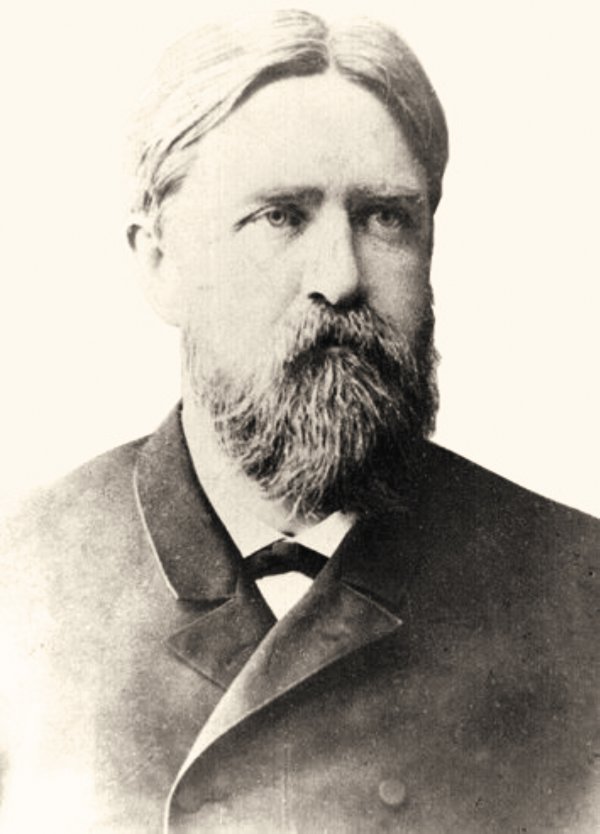 |
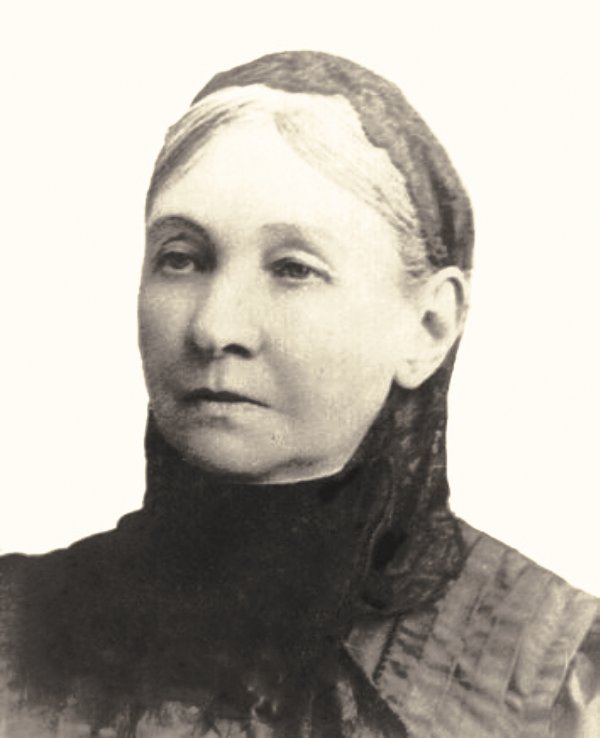 |
| Vladimir Stakheev (1842-1896) | Glaphira Stakheeva (1852-1927) |
The girls studied sciences, religion, etiquette, foreign languages, and music. After graduation they received home teacher certificates. Those who took an additional course in philology and mathematics got certificates of a church school teacher or a teacher of a diocesan school.
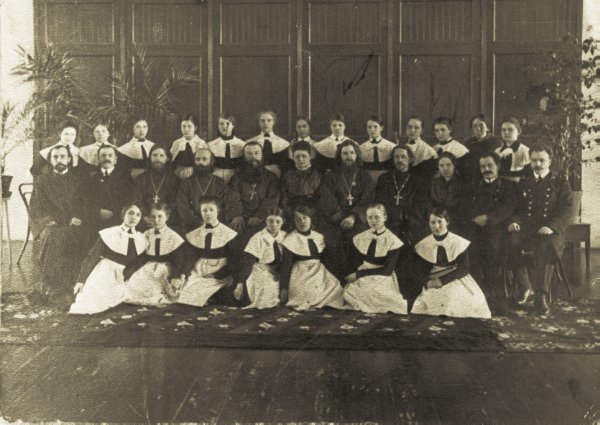 |
|
Teachers of Diocesan School surrounded by pupils End of XIX century |
The pedagogical traditions had never ceased to develop within the walls of the former Diocesan School. They were carried on by the staff of Teachers Seminary and the Teachers Training School which occupied the building in the pre-Second World War years.
In 1939 Teachers Training School entered a new stage of its history: it gained the status of an institution of higher education (Teachers Training Institute).
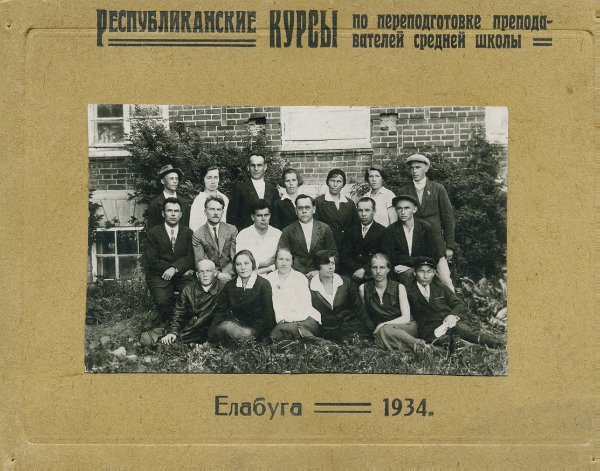 |
|
Retraining courses for secondary school teachers, 1934. |
During the Great Patriotic War Elabuga welcomed lecturers and scientists from the Universities of Leningrad and Voronezh as well as from a branch of the Academy of Sciences.
The outstanding scientists working in Elabuga during the War (V.A. Fok, V.A. Ambartsumyan, N.A. Tolstoy, V.I. Smirnov, G.A. Freiman, G.I. Petrashen) founded new scientific schools that later developed at Elabuga Teachers Training Institute.
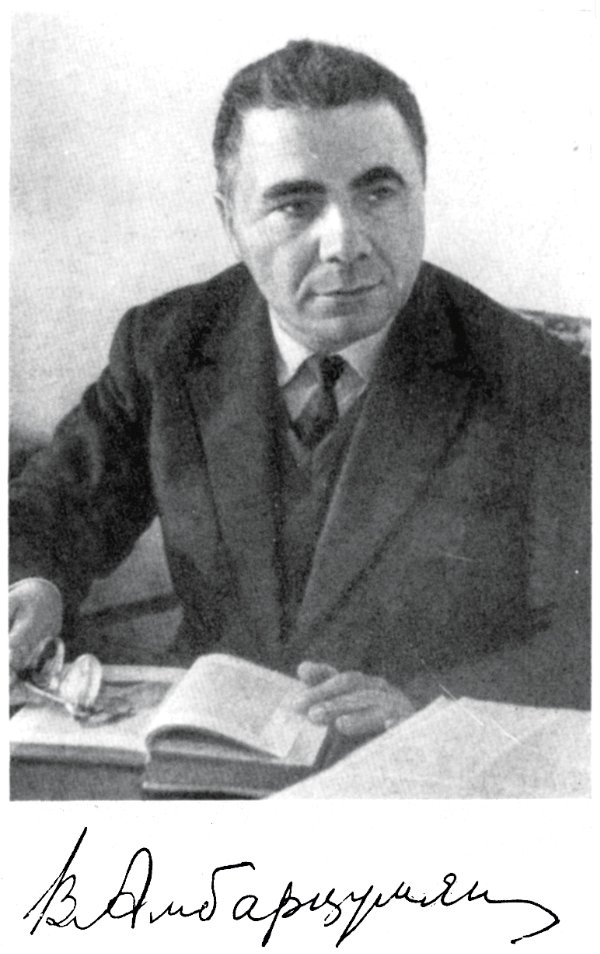 |
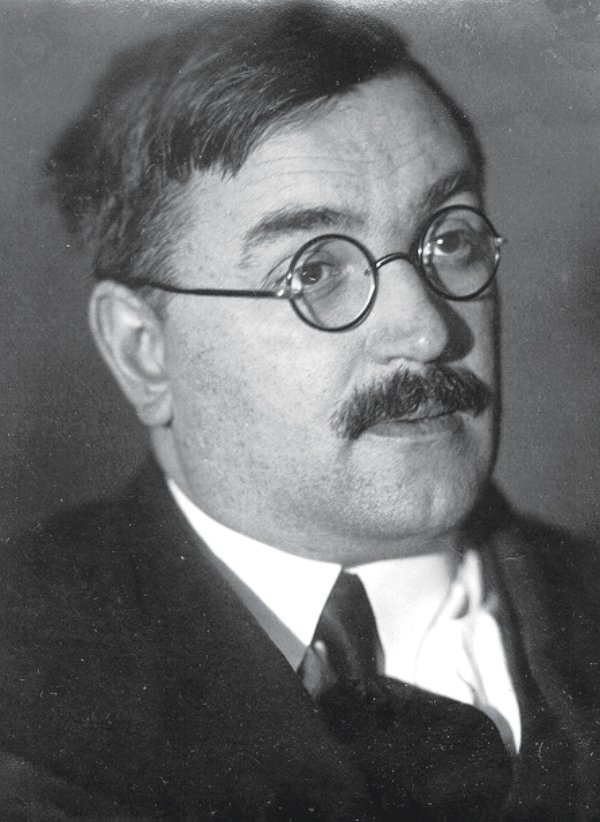 |
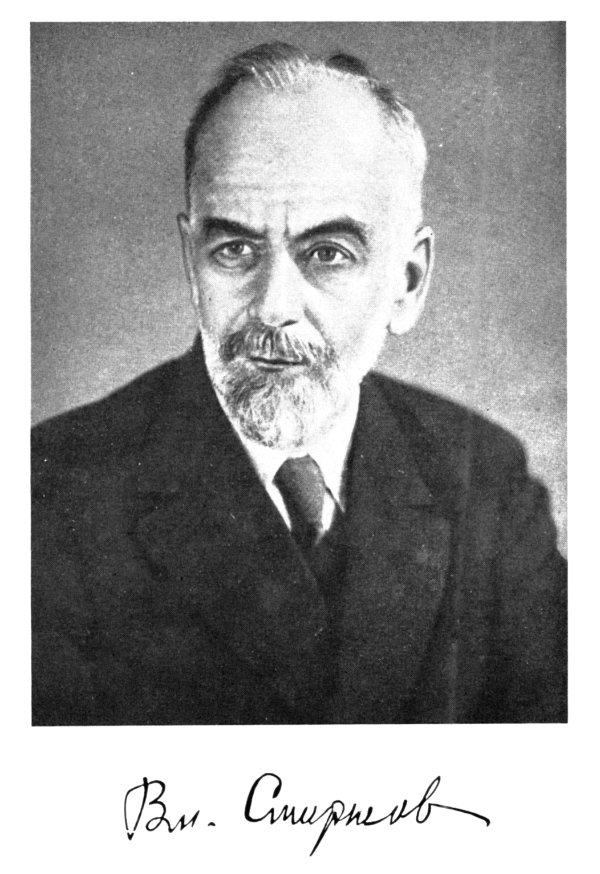 |
|
V.A. Ambartsumyan (1908-1996) |
V.A. Fok (1898-1974) |
V.I. Smirnov (1887-1974) |
The significance of pedagogical thought in Elabuga was recognized when on August 19, 1952, the government announced that Elabuga Teachers Training Institute would henceforth be known as Elabuga State Pedagogical Institute.
Deep traditions of training skilled professionals and powerful scientific potential laid the basis for transforming the Institute into Elabuga State Pedagogical University.
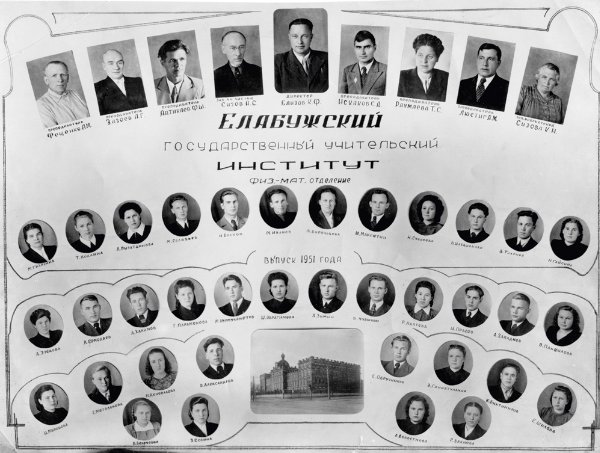 |
|
Alumni of Elabuga State Pedagogical Institute, 1951 |
In 2010 ESPU was merged into the newly established Kazan Federal University.
Elabuga Institute is now engaged in promoting advanced teaching technologies.
Today the academic structure of Elabuga Institute comprises ten faculties (Faculty of Physics and Mathematics; Russian Philology and Journalism; History and Law; Foreign Languages; Tatar Philology; Faculty of Technology and Engineering; Biology; Economics and Management; Physical Training; Psychology and Pedagogy), the Center for Professional Advancement and Supplementary Education and the Postgraduate School. There are eight baccalaureate programs in thirty seven directions majors and five postgraduate programs.
Over 200 faculty members are employed by the Institute.
Today Elabuga Institute trains about 5,000 students providing them with advanced teaching facilities. Elabuga Institute has four buildings, ten research laboratories, a library, three dormitories, a sports center, a students' cafe, a number of unique University museums, and a recreational camp.
Elabuga Institute has recently introduced new majors applied information science, energy engineering, transportation technology, and some others.
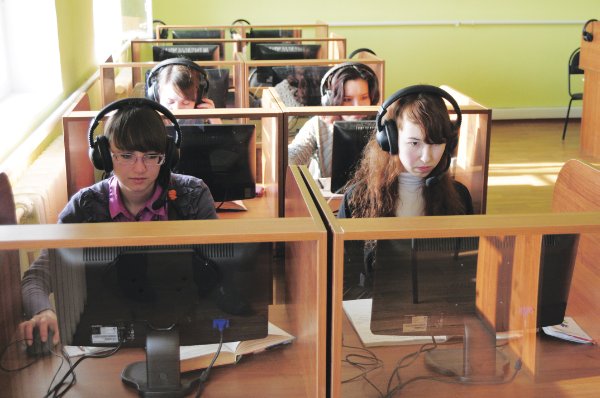 |
|
Students of the Faculty of Foreign Languages in language classrooms, 2013 |
Many of the well-known scientists from Russia and abroad take part in the international conferences, such as Stakheyev's Readings, Tsvetayeva's Readings and “The Problems of Turkic and Finno-Ugric Philology”.
Among the guests of the University are Chairman of the State Council of Tatarstan Farid Mukhametshin, Chief of the Presidential Domestic Policy Directorate Oleg Morozov, French Ambassador Jean Cadet, British Ambassador Sir Rodric Braithwaite, Secretary General of the Assembly of European Regions Pascal Goergen, Academicians V.Yanin and M.Piatrovsky, and others.
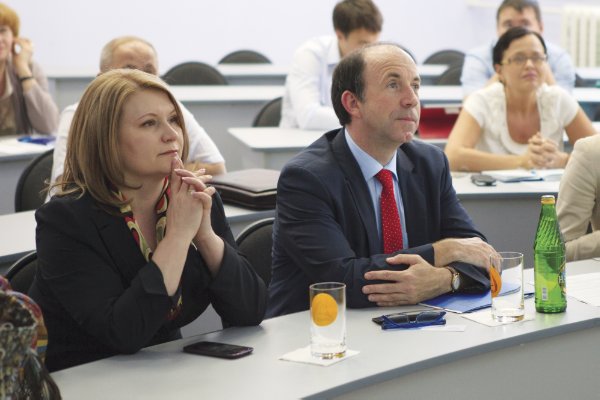 |
|
Secretary General of the Assembly of European Regions Pascal Goergen in Elabuga institute, 2013 |
Today Elabuga Institute implements several multi-level innovation projects and programs.
International Forum of Educationalists “School Teachers' Festival” gather teachers of Russia and Tatarstan to share their innovative experience and to gain the experience of their colleagues and scientists from Russia and abroad.
The “Children's University” project is aimed at stimulating educational enthusiasm in junior schoolchildren through interactive lessons conducted by the Institute's lecturers.
InteLLeto – a summer camp for gifted children – makes use of scientific advances in special purpose programs for schoolchildren.
 |
|
|
The main employer of the Institute's graduates is the Ministry of Education and Science of RT: every year more that 70% of the alumni join secondary schools' staff in Tatarstan and Russia.
The Institute has concluded agreements with resident enterprises of the special economic zone “Alabuga”, National Park “Nizhnyaya Kama”, Elabuga State Historical Architectural Museum-Reserve.
 |
|
Elena Merzon, Director of Elabuga Institute of Kazan Federal University: “Elabuga Institute occupies a prominent place in the structure of Kazan Federal University being an educational, intellectual and cultural center of the Kama region. For the 115-year history the institute has trained more than fifty thousand experts faithfully devoted to the noble work in education, science and culture”. |